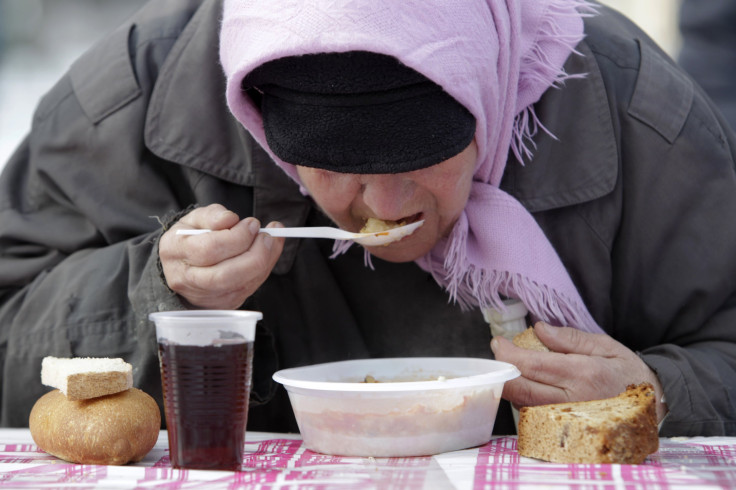Russians Living In Poverty Rise To Nearly 22M Amid Inflation, Falling Wages

Almost one in every seven Russians is now living in poverty, according to official data published Wednesday. In the first six months of 2015, the number of Russians living below the minimum income of 10,017 rubles ($147) a month grew to 21.7 million people -- an almost 15 percent increase from the same period last year, according to data from state statistics agency Rosstat, cited by the Moscow Times.
However, the Moscow Times report added that the effective poverty rate is likely to be far higher than the official figure. An August survey conducted by the state-run VTsIOM polling service found that the average figure cited as the minimum livable wage was 22,700 rubles ($334).
The rise in poverty has been fueled by spiraling inflation, which hit a 13-year high in March and consumer prices rising almost 17 percent from last year. The country’s GDP also plunged by 4.6 percent in the second quarter of this year, its largest fall since 2009.
According to a poll published earlier this month by the Levada Center, a Russian non-government research organization, economy is a major concern for most Russians, dwarfing the ongoing conflict in eastern Ukraine. It also found that 78 percent of respondents were worried about inflation, 42 percent about increasing poverty and 36 percent about unemployment, compared to just 22 percent who said the Ukrainian conflict was a concern.
Russians are being squeezed by both rising prices and shrinking real wages. A March report from Russian investment bank VTB Capital predicted that spending on food would account for 50 percent to 55 percent of all household income by the end of the year, up from 40 percent last year.
Moscow’s sanctions on imported Western food, combined with its weak economy, have caused the cost of several staples to skyrocket. The price of cabbage has risen by over 60 percent since the start of 2015 alone, according to a report from U.S.-based intelligence firm Stratfor. Similarly, the average price of potatoes has risen by 36 percent and beef prices have gone up by 10 percent.
Despite expanding its food imports from Latin American countries, Russians may soon be facing shortages of food, which could trigger social unrest, the Stratfor report cautioned.
© Copyright IBTimes 2024. All rights reserved.




















